Parisians have a habit of starting their day with a glass of beer and reading the news.
Amanda Rollins, an American, traveled to Paris five years ago and decided to move to live and work in the French capital. After half a decade in the city of light, Rollins has learned eight surprising things about the Parisian lifestyle.
Lunch break for more than two hours
In the French capital, lunch can last two hours or more. Rollins shared that the first time she went to lunch with colleagues in Paris, they ate at a restaurant, chatting from 12 to 14 hours. When in the US, Rollins got used to eating quickly at lunch to save time. She often ate a quick salad right at her desk.
When she arrived in Paris, she was surprised to see that her local friends spent a lot of time at lunch, ordering a full three-course meal including appetizer, main course, dessert, and sipping coffee after eating. At first, Rollins tried to change her living habits to integrate with the culture here. She said that hour-long meals with gossip at lunchtime are very popular with Parisians. "This culture is interesting, it helps people bond more," but Rollins did not like lunch. Therefore, she gradually extended her lunch appointments, turning down invitations from friends and colleagues so that she would not have to sit for hours eating and chatting.
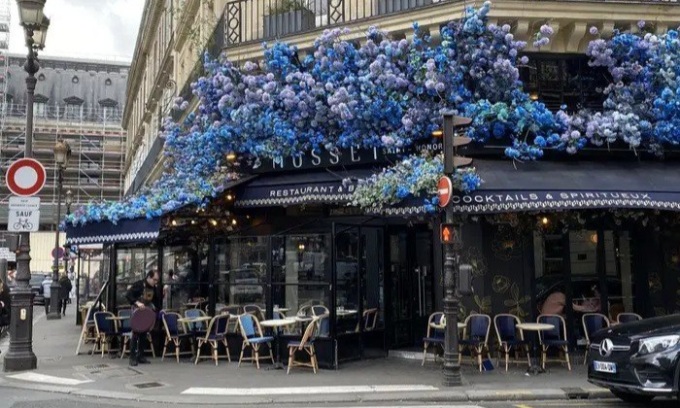
Parisians often have lunch and drink coffee on the sidewalk.
Baguettes are everywhere
The capital of France is the birthplace of many world- famous dishes, including baguettes. For the French in general and Parisians in particular, baguettes are closely associated with daily life. Most Parisians eat baguettes every day, the bread also appears in meals and is eaten with the main course, not as an appetizer like in the US. Most baguettes in France use basic ingredients including flour, water, yeast and salt, no preservatives, only used for a short time. A loaf of bread in Paris costs less than 2 euros, sold everywhere in the city.
Drinking alcohol is part of the culture
Amanda Rollins was also surprised by the drinking age in France. In the US, people over 21 are allowed to drink alcohol, while the legal age in France is 18. Drinking alcohol is considered part of French culture. People here drink alcohol for fun, not "to get drunk" like Americans. In addition, parties with alcohol, playing penalty drinking games or mixing alcohol with fruit are not common in France.
The French smoke a lot.
Before coming to Paris, Rollins had heard that the French were addicted to cigarettes, and at that time she was skeptical. But after living here for 5 years, she had to admit that Parisians smoke a lot. Walking down a busy street in the city center around noon, visitors will encounter dozens of Parisians smoking before meals. In cafes, there are always ashtrays on the tables for smokers.
Rollins said smoking is banned in enclosed public places in Paris such as cinemas, nightclubs, theatres or workplaces, public parks. These places often have designated smoking rooms.
"I've been to a few house parties in Paris where guests are allowed to smoke freely, often by the window or in the bathroom. This is something that is rare in the US," Rollins said.
Stylish Parisians
The way Parisians dress also surprised Rollins. Locals rarely wear sportswear and often dress in high-end clothes. Unlike in the US, people are comfortable walking around in sportswear just out of the gym.
In the French capital, most people take meticulous care in their appearance. Even when running to the grocery store, they are polite and neat.
Amanda says her time in Paris has improved her sense of style, giving her the confidence to express herself in public. Her wardrobe has been upgraded with smart pieces that can be combined into many different outfits.

[CaptioAmanda Rollins changed her style of dress a lot when she arrived in Paris.
Less going to the gym
Gym culture seems to be a bit lacking in Paris, with a few gyms boasting a lot of equipment but not many people using them. This is in contrast to some cities in the US. When Amanda lived in the US, she regularly went to the gym early in the morning. This habit changed when she moved to Paris, she went to the gym less often and opted for a light jog along the Seine a few times a week.
"Many Parisians I know walk a lot and lead active lifestyles. They're not in a gym with full equipment at 6 a.m. like Americans. Even though I exercise less in Paris, I still feel healthy," Amanda says.
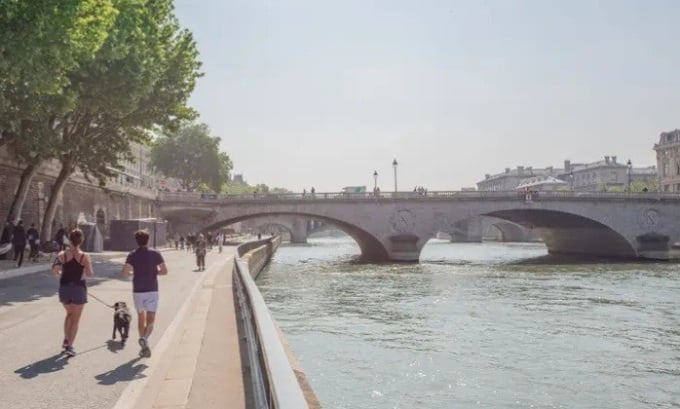
Parisians often jog along the Seine River for exercise.
Medical treatment in Paris is almost free.
Amanda Rollins shares this is in complete contrast to life in the US. In the land of the stars and stripes, people and tourists have to pay high fees for medical examination and treatment, health care is considered a luxury spending activity.
In Paris and other cities in France, health care is government-funded. Non-citizens with universal health insurance are also covered by this social benefit. Since moving to Paris, Rollins says she rarely has to “pay out of pocket for doctor visits and medications.”
Pharmacist handwrites instructions on medicine box
“The first time I picked up a prescription in Paris, the pharmacist took out a pen and started writing instructions on the box. The handwriting in French was pretty hard to read,” Rollins said.
When buying medicine in the US, the box is usually printed with all relevant information such as patient name, date of birth, and dosage instructions.
Bich Phuong (According to Insider)
Source link




![[Photo] Prime Minister Pham Minh Chinh inspects and directs the work of overcoming the consequences of floods after the storm in Thai Nguyen](https://vphoto.vietnam.vn/thumb/1200x675/vietnam/resource/IMAGE/2025/10/08/1759930075451_dsc-9441-jpg.webp)
![[Photo] Prime Minister Pham Minh Chinh attends the World Congress of the International Federation of Freight Forwarders and Transport Associations - FIATA](https://vphoto.vietnam.vn/thumb/1200x675/vietnam/resource/IMAGE/2025/10/08/1759936077106_dsc-0434-jpg.webp)


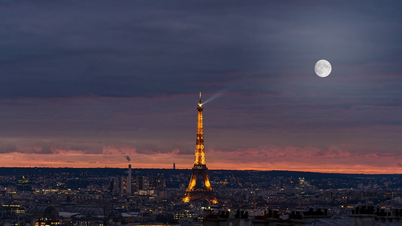

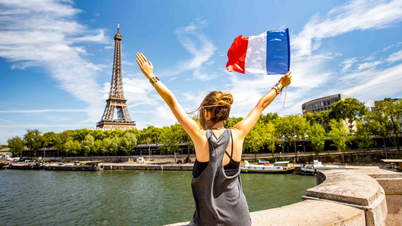













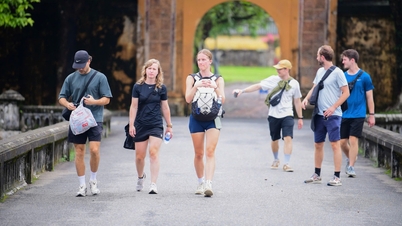














































































Comment (0)